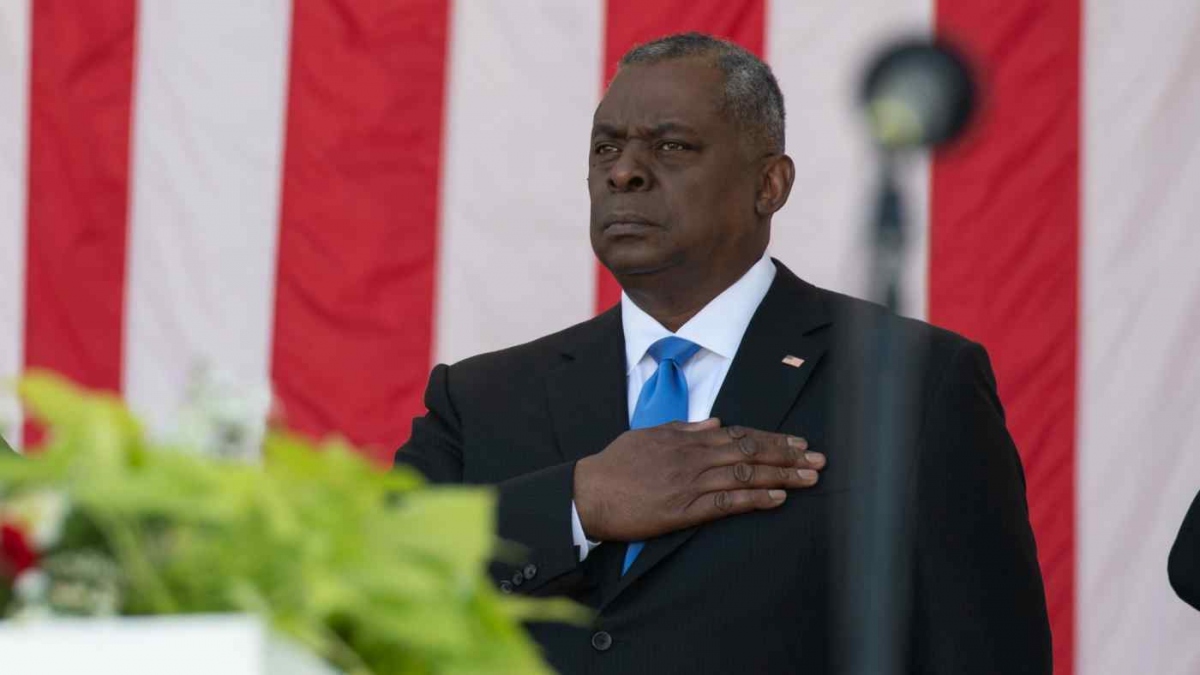Secretary Austin’s trip reaffirms President Biden’s commitment to Southeast Asia
VOV.VN - US Defense Secretary Lloyd Austin is making a trip to three Southeast Asian nations this week, demonstrating the Biden administration’s commitment to growing ties with its regional allies and deepening relations with Vietnam in particular, according to experts.

Since taking on the role, Secretary Austin has already been to Europe twice for discussions with the United States’ allies. He has also visited Japan, the Republic of Korea, and India, although he has yet to come to Southeast Asia. Amid increasing concerns regarding a lack of focus and engagement in the region, his tour of Singapore, Vietnam, and the Philippines is considered long overdue.
His trip will mark the second visit to Southeast Asia by a top member of the Biden administration, following a visit made by Deputy Secretary of State Wendy Sherman last month. The main purpose of the trip is clearly to allay perceptions of US disengagement from a region that lies at the heart of what US officials increasingly refer to as the “Indo-Pacific,” according to The Diplomat.
“Secretary Austin’s visit will demonstrate the importance the Biden-Harris Administration places on Southeast Asia and on ASEAN as an essential part of the Indo-Pacific’s architecture,” said John F. Kirby, press secretary of the Pentagon, in a statement when announcing the tour.
“This trip will underscore the enduring US commitment to the region, and our interest in upholding the rules-based international order in the region and promoting ASEAN centrality,” he added.
Increasing US interest in Southeast Asia
With territorial tensions smoldering in the South China Sea as Beijing looks to extend its reach, Washington hopes to cooperate with countries in the region for a more unified approach to China policy, Nikkei Asia reported.
“For an effective Asia strategy, for an effective Indo-Pacific approach, you must do more in Southeast Asia," said Kurt Campbell, the National Security Council's Indo-Pacific coordinator, at an Asia Society virtual event on July 6 as quoted by Nikkei Asia.
In a recent interview granted to zingnews.vn, Ted Osius, former US Ambassador to Vietnam, noted that with a population of 650 million and GDP of US$2.8 trillion, Southeast Asia will continue to be of great importance to the US’s foreign policy.
The US holds a fundamental interest in aspects such as freedom of navigation, including in the South China Sea, but also a long-term interest in the overall growth and prosperity of countries situated along the Mekong River, said Osius.
He said that US firms have heavily invested in ASEAN countries, while trading and economic ties between the two sides look set to prosper moving forward. In addition, the US is also working alongside ASEAN countries in many areas, such as COVID-19 recovery, climate change, clean energy, and stability restoration in Myanmar.
Sharing Osius’ view, Dr. Le Hong Hiep, a senior fellow at the ISEAS Yusof Ishak Institute (Singapore), also assessed that in the current context, Southeast Asia is playing an increasingly central role in the US’ foreign and defense calculations.
“The United States aspires to maintain a prosperous, independent, and free Southeast Asia that forms part of an open, free, and rules-based Indo-Pacific architecture,” Dr. Hiep told zingnews.vn.
Vietnam - an important security partner
As for Vietnam, Dr. Hiep said when the Pentagon selected Hanoi as one of Secretary Austin’s three destinations, the Biden administration confirmed that it is continuing to implement former President Donald Trump’s open and free Indo-Pacific policy.
In his opinion, the Biden administration is paying closer attention to restoring and strengthening its relationships with its allies and security partners as a means of effectively responding to various challenges, with Vietnam emerging as an important security partner for the US in the region.
Vietnam’s international position has been raised as seen through economic growth and defense capability improvement, alongside its important geostrategic position in Southeast Asia, analyzed Dr. Hiep.
He noted that given complications within the South China Sea, known locally as the East Sea, Vietnam shares strategic interests with the US and its allies on many issues, especially those relating to sovereignty in the area.
Therefore, strengthening relations with Vietnam, especially in the field of security and defence, represents one of the key priorities in the Biden administration’s foreign policy, stated Dr. Hiep.
Secretary Austin’s upcoming visit to Hanoi is anticipated to help implement agreements in terms of bilateral relations, especially the exchange of high-level visits made by leaders of the two countries’ defence ministries.
The visit will serve to build greater trust and give fresh impetus to developing relations between both sides, with the primary aim of establishing a framework for the joint strategic partnership in the future, according to the researcher.


